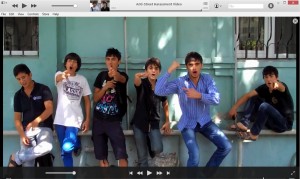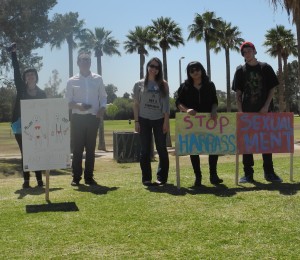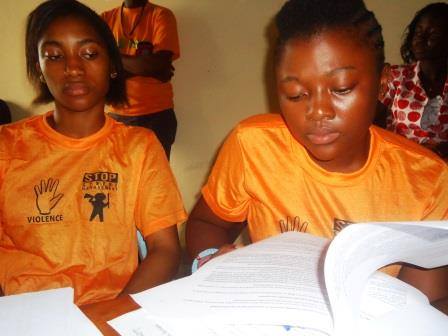An ex-boyfriend of mine posted flyers with my personal phone number, address, and work location. On the flyer it stated I was a drug addict/ dealer. Which I am not, I’m a pharmacy technician, and what he said on the flyer could of really hurt my career. I felt scared for my life, because people were actually believing the flyers harassing my phone, my residence, and even at my job. I went to the police, and they basically said they can’t help me until I was physically assaulted. So I put a restraining order against him. Now I’m just trying to recover, it’s very hard I’m still very fearful and a lot of anxiety. I go through therapy now, because I know that guy is still out there, apparently really close to where live I spoke up, because no one should ever have to go through or feel how I felt. Harassment is a serious crime that can emotionally damage a person.
– Tiana Sayas
Location: Oahu, Hawai’i
Share your street harassment story for the blog.
See the book 50 Stories about Stopping Street Harassers for more idea.




